I am working with SQL 2008 R2 and we updated it today with a SAP update PL-16. After that we are getting issue in my previous developed application.
We are getting errors in #temp tables.
ERROR:
[SQL Server Native 10.0][SQL Server]There is already an object named '#TEMP' in the database] FMS
We tried with a solution, insert 'drop table #temp' in the beginning of every query...
IF (SELECT object_id('TempDB..#Temp')) IS NOT NULL
BEGIN
DROP TABLE #Temp
END
It still prompts the same error. Any help?
The Big Query for reference :(
SELECT CASE
WHEN (CONVERT(FLOAT,$[$38.11]) >0
AND convert(float,$[$38.11],2) >= convert(float,t0.[U_FQuantity],2)
AND convert(float,$[$38.11],2) <= convert(float,t0.[U_LQuantity],2)) THEN T0.[U_Price2] *(1-CAST($[$38.28] AS DECIMAL(18,6)) /100)
WHEN (CONVERT(FLOAT,$[rdr1.U_mishkal],2) >0
AND $[rdr1.U_mishkal] >= t0.[U_FWeight]
AND $[rdr1.U_mishkal] <= t0.[U_LWeight]) THEN T0.[U_Price2] *(1-CAST($[$38.28] AS DECIMAL(18,6)) /100)
WHEN (CONVERT(FLOAT,$[rdr1.U_kmNsiaa],2) >0
AND $[rdr1.U_kmNsiaa] >= t0.[U_Fkm]
AND $[rdr1.U_kmNsiaa] <= t0.[U_Lkm]) THEN T0.[U_Price2] *(1-CAST($[$38.28] AS DECIMAL(18,6)) /100)
WHEN (CONVERT(FLOAT,$[rdr1.U_Nefach],2) >0
AND $[rdr1.U_Nefach] >= t0.[U_FVolume]
AND $[rdr1.U_Nefach] <= t0.[U_LVolume]) THEN T0.[U_Price2] *(1-CAST($[$38.28] AS DECIMAL(18,6)) /100)
WHEN (CONVERT(FLOAT,$[rdr1.U_Point],2) >0
AND $[rdr1.U_Point] >= t0.[U_FPoint]
AND $[rdr1.U_Point] <= t0.[U_LPoint]) THEN T0.[U_Price2] *(1-CAST($[$38.28] AS DECIMAL(18,6)) /100)
WHEN (CONVERT(FLOAT,$[rdr1.U_Hamtana],2) >0
AND $[rdr1.U_Hamtana] >= t0.[U_FHamtana]
AND $[rdr1.U_Hamtana] <= t0.[U_LHamtana]) THEN T0.[U_Price2] *(1-CAST($[$38.28] AS DECIMAL(18,6)) /100)
END AS 'price' INTO #TEMP
FROM [dbo].[@PRICELIST] T0
INNER JOIN [dbo].[OITM] T1 ON T0.[U_ItemCode]=T1.[U_ZPRICELIST]
WHERE T0.[U_Cardcode] = $[ORDR.U_PCARDCODE.0]
AND T1.[ItemCode] = $[$38.1]
AND T0.[U_SugMitan] =$[rdr1.U_SugMitan.1]
AND T0.[U_SugRehev] = $[Rdr1.U_SugRehev.1]
AND t0.U_SugHishuv='2'
INSERT INTO #TEMP
SELECT CASE
WHEN (CONVERT(FLOAT,$[$38.11]) >0
AND convert(float,$[$38.11],2) >= convert(float,t0.[U_FQuantity],2)
AND convert(float,$[$38.11],2) <= convert(float,t0.[U_LQuantity],2)) THEN T0.[U_Price2]/(CONVERT(FLOAT,$[$38.11],2)) *(1-CAST($[$38.28] AS DECIMAL(18,6)) /100)
WHEN (CONVERT(FLOAT,$[rdr1.U_mishkal],2) >0
AND $[rdr1.U_mishkal] >= t0.[U_FWeight]
AND $[rdr1.U_mishkal] <= t0.[U_LWeight]) THEN T0.[U_Price2]/(CONVERT(FLOAT,$[$38.11],2)) *(1-CAST($[$38.28] AS DECIMAL(18,6)) /100)
WHEN (CONVERT(FLOAT,$[rdr1.U_kmNsiaa],2) >0
AND $[rdr1.U_kmNsiaa] >= t0.[U_Fkm]
AND $[rdr1.U_kmNsiaa] <= t0.[U_Lkm]) THEN T0.[U_Price2]/(CONVERT(FLOAT,$[$38.11],2)) *(1-CAST($[$38.28] AS DECIMAL(18,6)) /100)
WHEN (CONVERT(FLOAT,$[rdr1.U_Nefach],2) >0
AND $[rdr1.U_Nefach] >= t0.[U_FVolume]
AND $[rdr1.U_Nefach] <= t0.[U_LVolume]) THEN T0.[U_Price2] /(CONVERT(FLOAT,$[$38.11],2)) *(1-CAST($[$38.28] AS DECIMAL(18,6)) /100)
WHEN (CONVERT(FLOAT,$[rdr1.U_Point],2) >0
AND $[rdr1.U_Point] >= t0.[U_FPoint]
AND $[rdr1.U_Point] <= t0.[U_LPoint]) THEN T0.[U_Price2] /(CONVERT(FLOAT,$[$38.11],2)) *(1-CAST($[$38.28] AS DECIMAL(18,6)) /100)
WHEN (CONVERT(FLOAT,$[rdr1.U_Hamtana],2) >0
AND $[rdr1.U_Hamtana] >= t0.[U_FHamtana]
AND $[rdr1.U_Hamtana] <= t0.[U_LHamtana]) THEN T0.[U_Price2] /(CONVERT(FLOAT,$[$38.11],2)) *(1-CAST($[$38.28] AS DECIMAL(18,6)) /100)
END AS 'price'
FROM [dbo].[@PRICELIST] T0
INNER JOIN [dbo].[OITM] T1 ON T0.[U_ItemCode]=T1.[U_ZPRICELIST] WHERE T0.[U_Cardcode] = $[ORDR.U_PCARDCODE.0]
AND T1.[ItemCode] = $[$38.1]
AND T0.[U_SugMitan] =$[rdr1.U_SugMitan.1]
AND T0.[U_SugRehev] = $[Rdr1.U_SugRehev.1]
AND t0.U_SugHishuv='1'
INSERT INTO #TEMP
SELECT CASE
WHEN (CONVERT(FLOAT,$[$38.11]) >0
AND convert(float,$[$38.11],2) >= convert(float,t0.[U_FQuantity],2)
AND convert(float,$[$38.11],2) <= convert(float,t0.[U_LQuantity],2)) THEN T0.[U_Price2] *(1-CAST($[$38.28] AS DECIMAL(18,6)) /100)
WHEN (CONVERT(FLOAT,$[rdr1.U_mishkal],2) >0
AND $[rdr1.U_mishkal] >= t0.[U_FWeight]
AND $[rdr1.U_mishkal] <= t0.[U_LWeight]) THEN T0.[U_Price2] *(1-CAST($[$38.28] AS DECIMAL(18,6)) /100)
WHEN (CONVERT(FLOAT,$[rdr1.U_kmNsiaa],2) >0
AND $[rdr1.U_kmNsiaa] >= t0.[U_Fkm]
AND $[rdr1.U_kmNsiaa] <= t0.[U_Lkm]) THEN T0.[U_Price2] *(1-CAST($[$38.28] AS DECIMAL(18,6)) /100)
WHEN (CONVERT(FLOAT,$[rdr1.U_Nefach],2) >0
AND $[rdr1.U_Nefach] >= t0.[U_FVolume]
AND $[rdr1.U_Nefach] <= t0.[U_LVolume]) THEN T0.[U_Price2] *(1-CAST($[$38.28] AS DECIMAL(18,6)) /100)
WHEN (CONVERT(FLOAT,$[rdr1.U_Point],2) >0
AND $[rdr1.U_Point] >= t0.[U_FPoint]
AND $[rdr1.U_Point] <= t0.[U_LPoint]) THEN T0.[U_Price2] /(CONVERT(FLOAT,$[$38.11],2))*(CONVERT(FLOAT,$[$38.U_KmNsiaa],2)) *(1-CAST($[$38.28] AS DECIMAL(18,6)) /100)
WHEN (CONVERT(FLOAT,$[rdr1.U_Hamtana],2) >0
AND $[rdr1.U_Hamtana] >= t0.[U_FHamtana]
AND $[rdr1.U_Hamtana] <= t0.[U_LHamtana]) THEN T0.[U_Price2] *(1-CAST($[$38.28] AS DECIMAL(18,6)) /100)
END AS 'price'
FROM [dbo].[@PRICELIST] T0
INNER JOIN [dbo].[OITM] T1 ON T0.[U_ItemCode]=T1.[U_ZPRICELIST] WHERE T0.[U_Cardcode] = $[ORDR.U_PCARDCODE.0]
AND T1.[ItemCode] = $[$38.1]
AND T0.[U_SugMitan] =$[rdr1.U_SugMitan.1]
AND T0.[U_SugRehev] = $[Rdr1.U_SugRehev.1]
AND t0.U_SugHishuv='3'
SELECT max(T0.PRICE)
FROM #TEMP T0
DROP TABLE #TEMP
